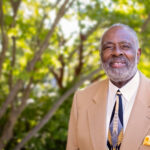Before President Joe Biden even took office, his incoming administration hopped on the phone with officials in Iran, wondering if they could salvage the 2015 nuclear deal. In it, Iran promised to restrict its nuclear program to civilian work in exchange for sanctions relief.
Three years ago, Donald Trump pulled the United States out of the deal, charging that Iran wasn’t holding up its end. The U.S. reimposed sanctions, and Iran ramped up nuclear production.
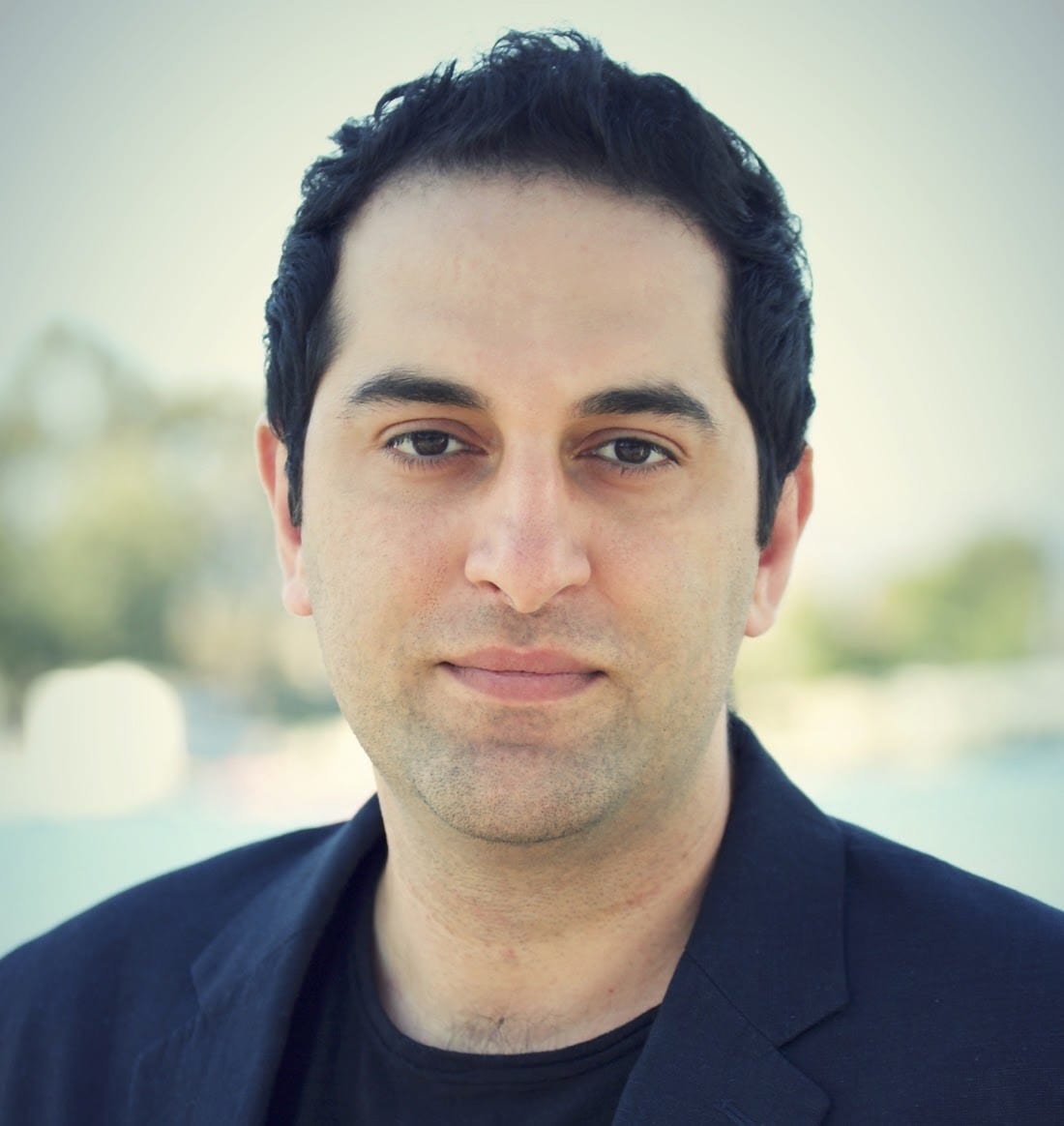
“The sanctions have been brutal on the economy, and on the people,” said Paul Crabtree, a Christian source close to the region. (His name has been changed for security purposes.) In Iran, “people are mixed about this.” Some compare Trump to Adolf Hitler. Others argue that if it causes the people to rise up against the Iranian government, it’ll be worth it.
Either way, the situation underlines what the Iranian people have known for a long time: their government—the only Islamic theocracy in the world—is not providing the utopia it promised.
“Water is limited, pollution is terrible, structural planning is poor,” Crabtree said. “A lot of people don’t trust the government at all.” And since the government claims to be an incarnation of Islam, it follows that people have also been growing disillusioned with their faith.
While official reports still claim that 99.4 percent of Iranians practice Islam, a 2020 survey found that just 40 percent actually identify as Muslim. An even larger number—about 47 percent—said they were “nones,” atheists, spiritual, agnostic, or humanist. Another 8 percent claim Zoroastrianism, an ancient Persian religion.
And a small sliver—1.5 percent—said they were Christians.
“About 20 years ago, the number of Christian converts from a Muslim background was between 5,000 and 10,000 people,” Crabtree said. “Today that’s between 800,000 to 1 million people. That’s massive growth.” According to Operation World, Iran has the fastest-growing evangelical movement in the world.
According to Operation World, Iran has the fastest-growing evangelical movement in the world.
None of this is good for a regime that depends on a belief in Islam to stay in power. Crackdowns have been increasingly harsh, especially over the past five years. But evangelism hasn’t slowed. Despite the pandemic, ministries have reported growth in engagement and interest in the gospel via social media outreach or personal evangelism among Christians inside Iran.
One of those places is Nima Alizadeh’s online Bible study. Over the past few years, attendance has grown from 40 people to more than 600.
“I teach four days a week,” said Alizadeh, who helped relaunch TGC’s Farsi site in May. His classes range from basic discipleship for new believers to deeper theology for people hungry for more.
“The fanatic Shia Muslims in Iran proved to people that Islam is not the way,” he said. “It gives us the opportunity to show people an alternative.”
Tehran
Alizadeh was born in Tehran two years after Iran’s 1979 revolution, which deposed the country’s monarchy in favor of an Islamic theocracy. Ayatollah Ruhollah Khomeini and his guard corps began enforcing strict adherence to Islamic rules (including mandatory head coverings or women and banning alcohol), eradicating anything modern or Western (including Christian missionaries), and frowning on anything fun.
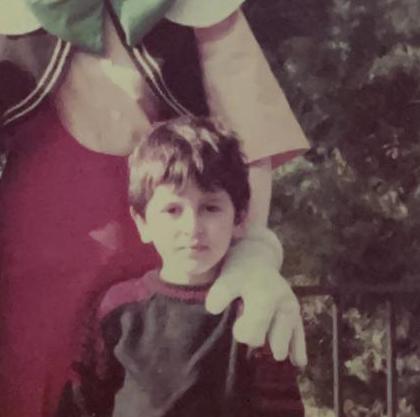
Persian Christians had been in trouble long before that—their population had been shrinking under cultural pressure and outright persecution ever since the Islamic Arabs took over around 700 AD. But the shah’s government had at least been secular, which left a little space for Christians to practice their faith.
Under Islamic law, Christianity struggled. “There were very few conversions,” Crabtree said. Any gospel spread was mostly among historically Christian populations, such as Armenians or Assyrians. Among the larger Persian culture, Christianity looked dead.
But it wasn’t.
“I was born in Tehran,” Alizadeh said. “I grew up in a nominal Muslim family, trying to practice Islamic ways of worship because at school and in society you’re forced to follow Islam. But I knew it was not working.”
Still, when his uncle became a Christian, it was “a massive shock to all of us,” he said. The uncle lived in California; the next time he came to visit Tehran, Alizadeh asked him about it. “I thought Christianity was for the Western culture, and Islam was for the Eastern culture,” he told his uncle. “Why did you change your religion?”
So his uncle explained Jesus, which wasn’t the way Alizadeh had heard about him in school. “Right then, I believed everything he said. I was so thirsty to hear the truth. My eyes and ears were opened, and I had this massive conviction in my heart. This was it—this was what I was looking for. I was born to hear this.”
The story isn’t uncommon, Crabtree said. Before the shah was overthrown, thousands of Iranian students studied abroad, many in the United States. After the revolution, another wave fled the repression of the ayatollah. Many of them were exposed to Christianity and able to begin sharing it with family on trips home.
Meanwhile, Iran’s experiment in theocracy was wobbling, and the country developed something of a split personality. In public, men and women are kept apart; alcohol is illegal; and everyone hates the West. But in private, there are parties and American television shows. Once in a while, government officials come through a neighborhood and take down everyone’s satellite dish. The next day, people put them back up.
“Abbas Kiarostami, the award-winning director who died in 2016, used mostly everyday people rather than actors in his movies, because Iranians were so accustomed to switching between lives in two worlds,” reported the New York Times.
Alizadeh knew all about switching.
Switching to Survive
By 18, Alizadeh—always athletic—was playing basketball professionally.
“Both of my parents were professional volleyball players,” he said. “But when I got to high school, no one played volleyball. Basketball was popular.” Alizadeh’s dad bought him a hoop and a Michael Jordan video.
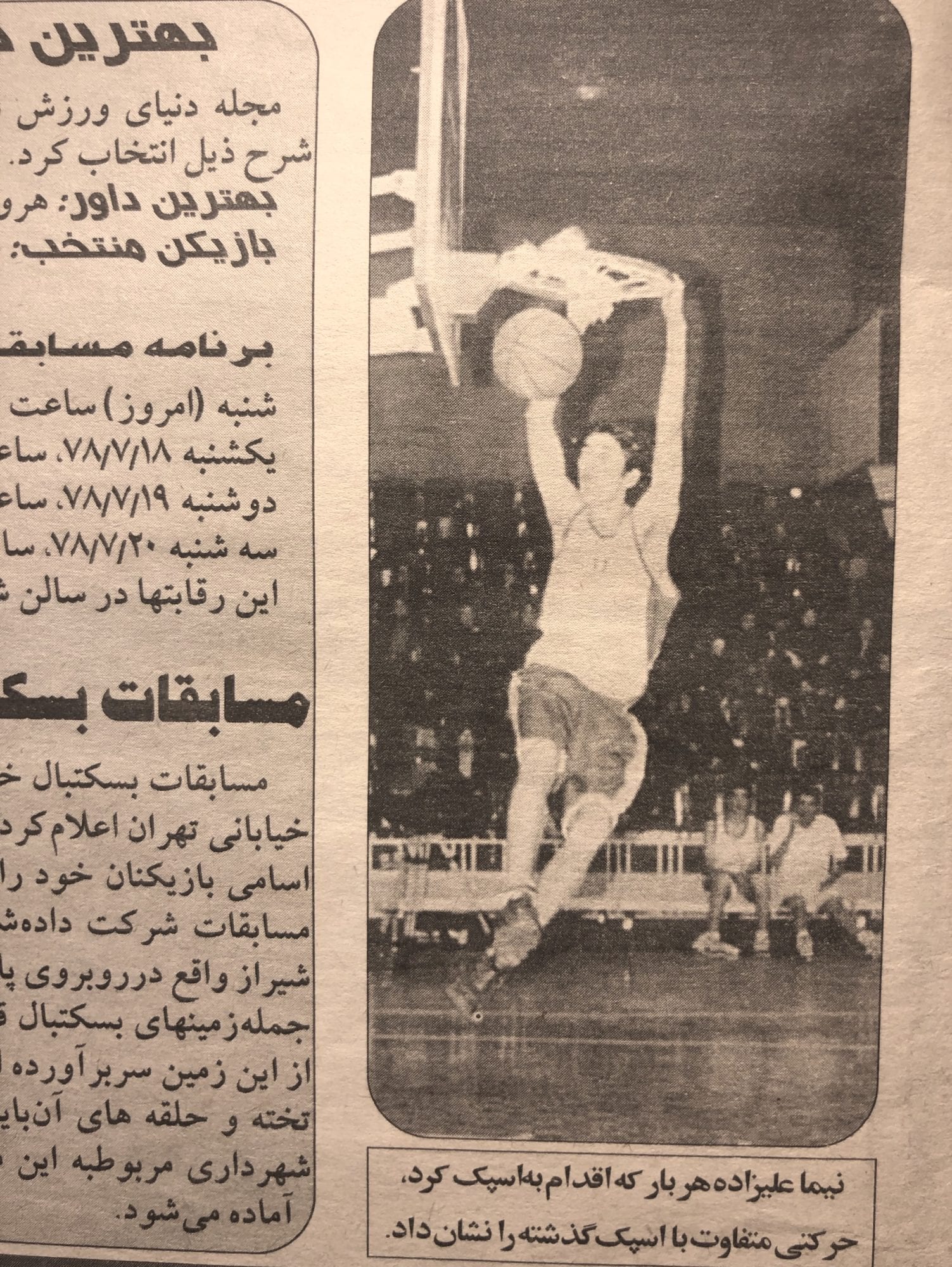
“At the age of 16, I was playing in the street and a car pulled over and a man gave me a card and told me, ‘I have been watching you playing here, and I want to invite you to come to my club to practice with us,’” Alizadeh said. He joined the man’s team and was named “star of the year.” Soon he was playing professionally, winning the country’s slam dunk competition in 1999.
He didn’t tell his team anything about his new faith.
“If they knew, I’d be kicked out,” he said. “And I’d probably be arrested.” His conversion was apostasy, a serious offense that could carry the death penalty. (When Alizadeh was 9 years old, an Assemblies of God minister and bookstore owner was tortured and hanged for apostasy. Five years later, three other Protestant pastors were also abducted and killed.)
He carefully told two close friends about Christianity, and they also converted. But the three were on their own. “We didn’t have a Bible,” he said. “We didn’t know what church was.”
At the same time, Alizadeh was trying to get out of Iran, eager to play ball in the United States. His uncle’s friend told him to go to South Korea, where a guy could get you a visa to America. Alizadeh flew to South Korea, but when he discovered the visa was fraudulent, he turned it down.
Alizadeh headed back home, but not before he ran into another Iranian. They were both lost, late at night, looking for the train. “We ended up in front of a church,” Alizadeh said.
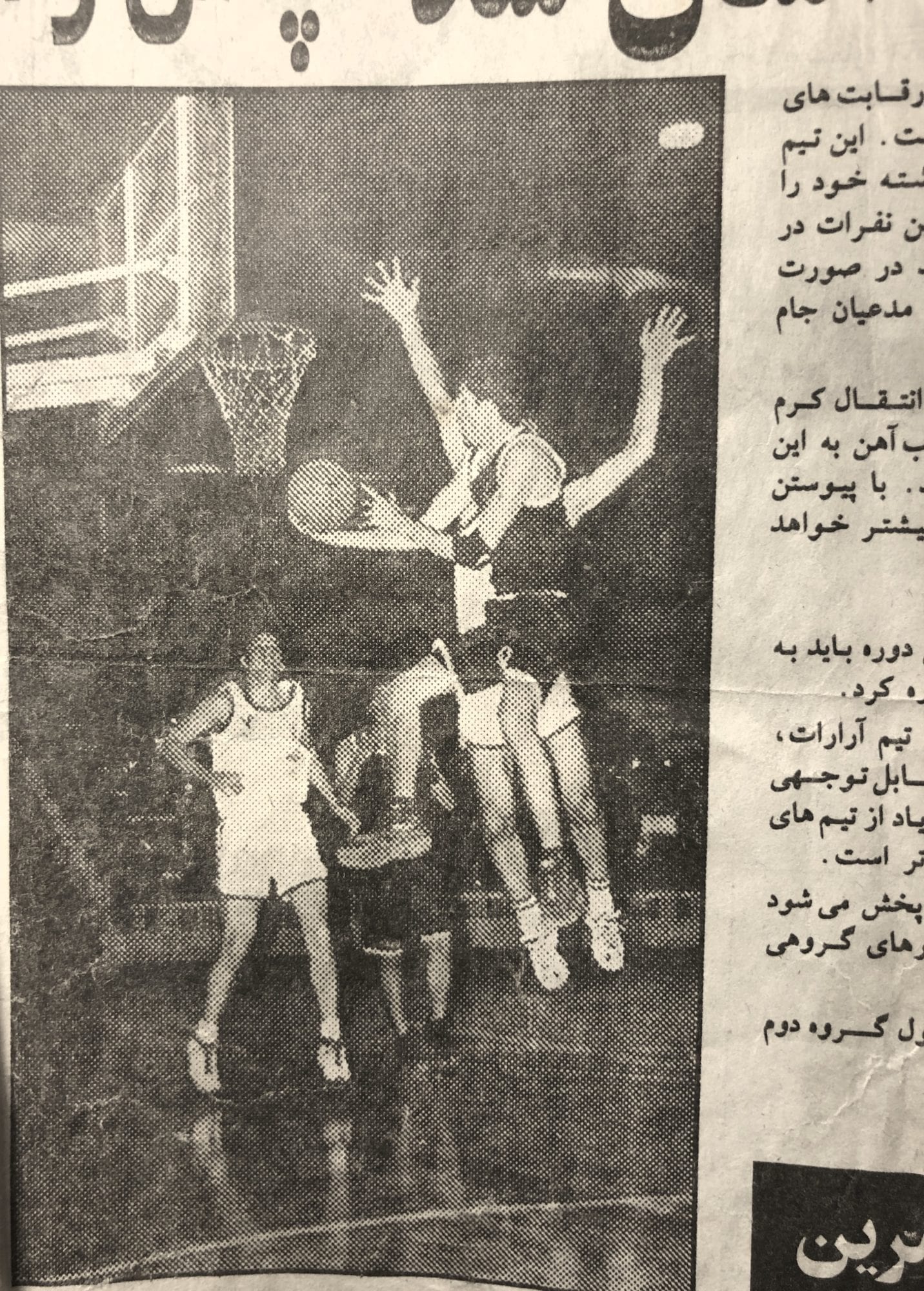
Emboldened, he took a chance. “I said, ‘I’m a Christian.’ I thought he would be really surprised, but he said, ‘I’m a Christian, too.’ And we were both wearing crosses around our necks—identical crosses.”
Alizadeh’s new friend worked with South Koreans who ran a hotel and a Bible study in Tehran. They were just a few blocks from Alizadeh’s house, and he began walking over there to study with them in secret.
“I had so many questions, and the Korean pastor couldn’t speak Farsi fluently,” Alizadeh said. “He said, ‘You have too many questions. I have to send you to some Persians.’”
The Korean passed him over to an Armenian-Iranian, who worked with Alizadeh for three months before introducing him to other Iranian Christians. He wasn’t being paranoid: sometimes government spies know more about the Bible than the Christians do, Crabtree said. “And sometimes people are threatened and turn on their house church network out of fear. The government will put you in a room for 30 days with the lights on and interrogate you, breaking you down mentally and emotionally.”
Eventually, Alizadeh was deemed sincere enough to be introduced to a church.
“It was a house church, with five people singing and reading quietly,” he said. “I fell in love with that group and joined it. After a year, I’d really grown in my faith, and they asked me to be a youth leader.”
You might wonder why a church of five would need a youth leader. It wouldn’t. But over the course of a year, those five Christians had expanded to 45.
Gospel Growth
Alizadeh’s church was good at evangelism.
“Every one of us [in the house church] had a group of friends and family,” Alizadeh said. “First we’d go to them.” Steadily, their numbers increased.
“Then we were praying about going to different cities,” Alizadeh said. “We’d walk for the whole day, going to the shopping mall and, if a person seemed open, we’d share the gospel and give out tracts and videos.”
Whenever two or three people came to the Lord, Alizadeh’s church would connect them with each other and help them begin to evangelize. Over the past 20 years, this church has planted about 25 other small groups in 12 cities. About 500 people have committed their lives to Jesus.
Over the past 20 years, this church has planted about 25 other small groups in 12 cities. About 500 people have committed their lives to Jesus.
That type of gospel growth was happening all over the country. A Christian television channel began broadcasting in Farsi into the country; later, information flooded in with the internet (and three more Christian television channels). Organizations were smuggling in Bibles. The rise of international travel helped too, with some missionaries in Turkey reaching out to Iranians on vacation. And as the diaspora grew, more had opportunities to convert and then share their faith with their family back in Iran, as Alizadeh’s uncle did.
“Iran has the fastest growing church of the last 10 to 20 years,” Alizadeh said. “I was seeing the first fruit of it. People are so open to the gospel—we could not imagine. We’d travel to the north to evangelize, and people would say, ‘Oh, yeah, that’s it.’ They were accepting it, telling their friends. All of a sudden we’d have a church group. It felt easy.”
But at the same time, it was terrifying.
Hostile Government
In Iran, anyone who shares their faith, publishes Christian literature, or holds church services in the common language of Farsi can be arrested—and they are. Punishment is often prison, and sentences are long. Last year two Christian converts were flogged 80 times for drinking communion wine, then sentenced to several years in prison for organizing house churches. In 2018, four Christians were sentenced to 10 years in prison—one of them had originally been sentenced in 2010 to die by hanging.
“One day we went to a guitar shop to share the gospel,” Alizadeh said. “The guy was very positive. He said, ‘Oh, that’s wonderful. Let me call my friends to tell them too.’”
But he didn’t call his friends. He called the police.
“We ran,” Alizadeh said. “Sometimes when we were handing out tracts people would grab our hands and say, ‘What are you doing? Are you apostate?’ We’d run. It was tough.”
Eventually, it became clear the government knew about Alizadeh. A friend who worked in telecommunications discovered Alizadeh’s phone number was being tapped. Another day two strange men came to the house asking for him. Another friend—who was arrested—came to Alizadeh after he was released. “The first thing they asked me was about you,” he reported. And then a friend, who had been staying with Alizadeh, went to the government for an interview about his job. He didn’t come back to Alizadeh’s place, wouldn’t answer his calls.
Australia
Spooked, Alizadeh’s mother sent him to study in Armenia. Eventually, he made his way to Australia, where an Anglican elder was attempting to minister to Iranians.

“He could say a few words in Farsi,” Alizadeh said. “He’d been doing that Farsi ministry for 19 years. He would find translators to put things online.” When he met Alizadeh, he cried. “I’ve been praying for someone like you for 19 years,” he told him.
The elder invited Alizadeh into his ministry, taught him Reformed theology, and directed him to Moore Theological College. “That education was the toughest thing I’ve ever done in my life,” said Alizadeh, whose English was rough and whose Greek was nonexistent.
But learning Reformed theology “changed me in a massive way,” he said. “In Iran, I had no access to literature, books, theology. So seminary was a massive ocean of theology and knowledge, which was changing my mind.” He’d learn a biblical concept, and then teach it to his Farsi-speaking refugee congregation.
Ten years in, he’d trained up leaders in the congregation. After “lots of prayer and advice,” he and his wife moved to southern California to minister to Persians there. It was a strategic move: California has the largest population of Iranians outside Iran.
Theology in Tehrangeles
The 87,000 Iranians who live in the greater Los Angeles area started to arrive around the 1979 revolution. Alizadeh joined them—an Iranian missionary sent from an Australian church—in 2018.
Right away, he signed on with the Anglican Church of North America and the staff of Grace Anglican Church. And he registered a nonprofit—Iranian Revelation Ministries. It was an iteration of a website he’d started in Sydney a few years before, with the goal of sharing solid theology with his country.
California has the largest population of Iranians outside Iran.
In Iran, Christianity is largely Pentecostal and sometimes veers into health-and-wealth theology, Crabtree said. One reason for this is the prevalence of superstition and mysticism in the culture.
“Dreams and miracle seeking are a common part of everyday Persian life,” he said. “‘Superior’ spiritual leaders like famous imams who tell people what to do are cultural icons. Also, as the economic and health situation continues to worsen in Iran, people are looking everywhere and anywhere for hope. It is quite easy to convince them to say a prayer and think Jesus will solve all their problems.”
But when Iranians come to the gospel for health, wealth, and a visa to America, they’re disappointed. “This is where healthy theological resources, online discipleship, and theological training programs are so necessary,” Crabtree said. “There is also a huge gap between discipleship and local church involvement. This is largely driven by fear of persecution and lack of understanding about the importance of the local church.”
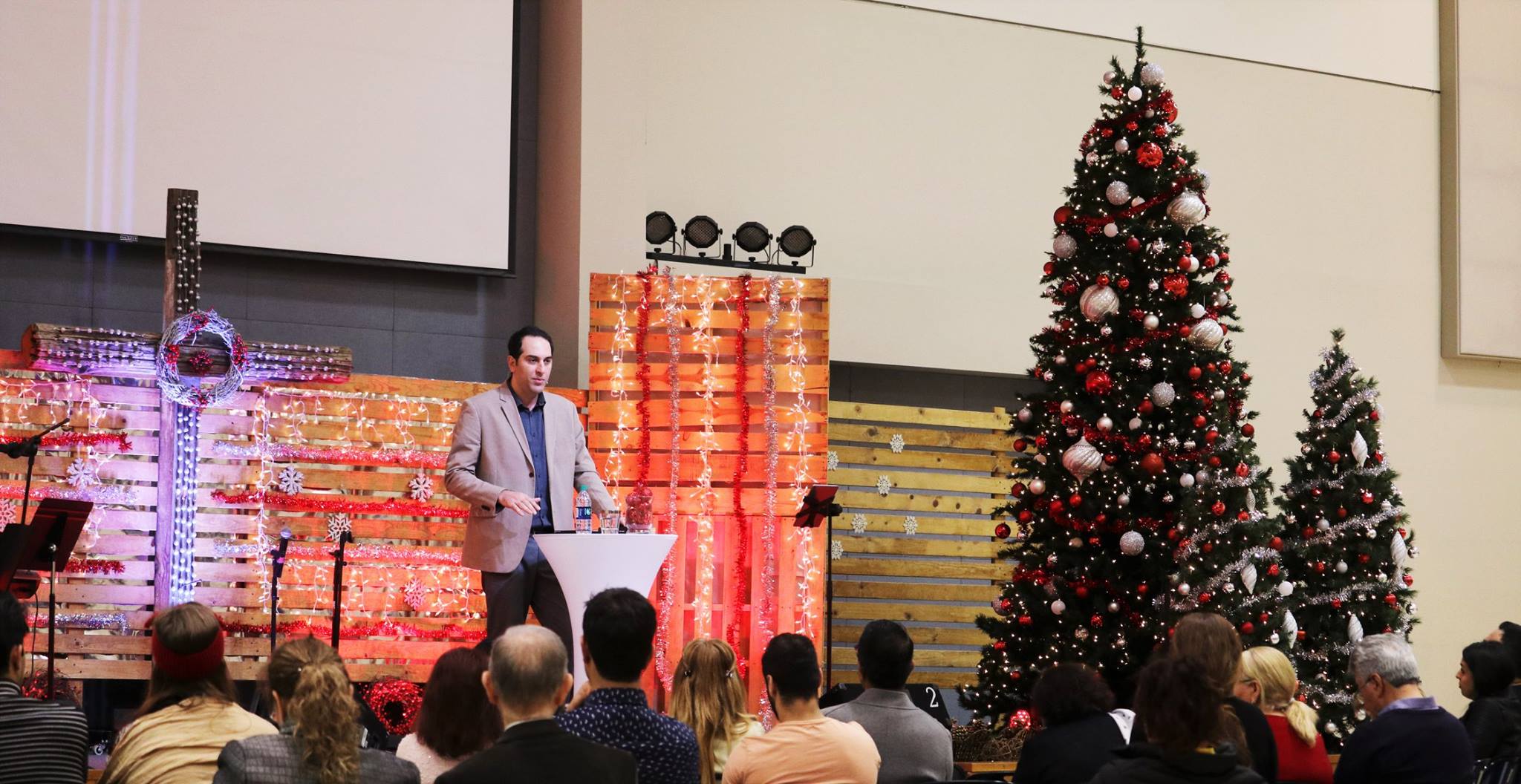
The internet makes delivering education safer and easier than before. Both Third Mill and Southeastern Baptist Theological Seminary offer Farsi courses online, Crabtree said.
This past year, the pandemic sent Iranians online more than ever. “In addition to higher numbers of seekers during COVID-19, online follow-up groups have also seen people more willing to engage in online discipleship groups,” the National Christian Foundation reported in June.
These days, Alizadeh’s online discipleship program has ballooned from 40 people to 620, split into classes for seekers and new believers, theology and doctrine, and a Bible study for mature believers. On Saturdays Alizadeh invites pastors and leaders of different churches in the Iranian community to talk about current issues.
“Sixty percent of our group is from Iran,” he said. They meet on Zoom, using fake names and leaving off any pictures. “We try to be safe, but they know it’s dangerous. They are willing to take the risk.”
In May, he launched the TGC Farsi site with 100 translated articles and videos.
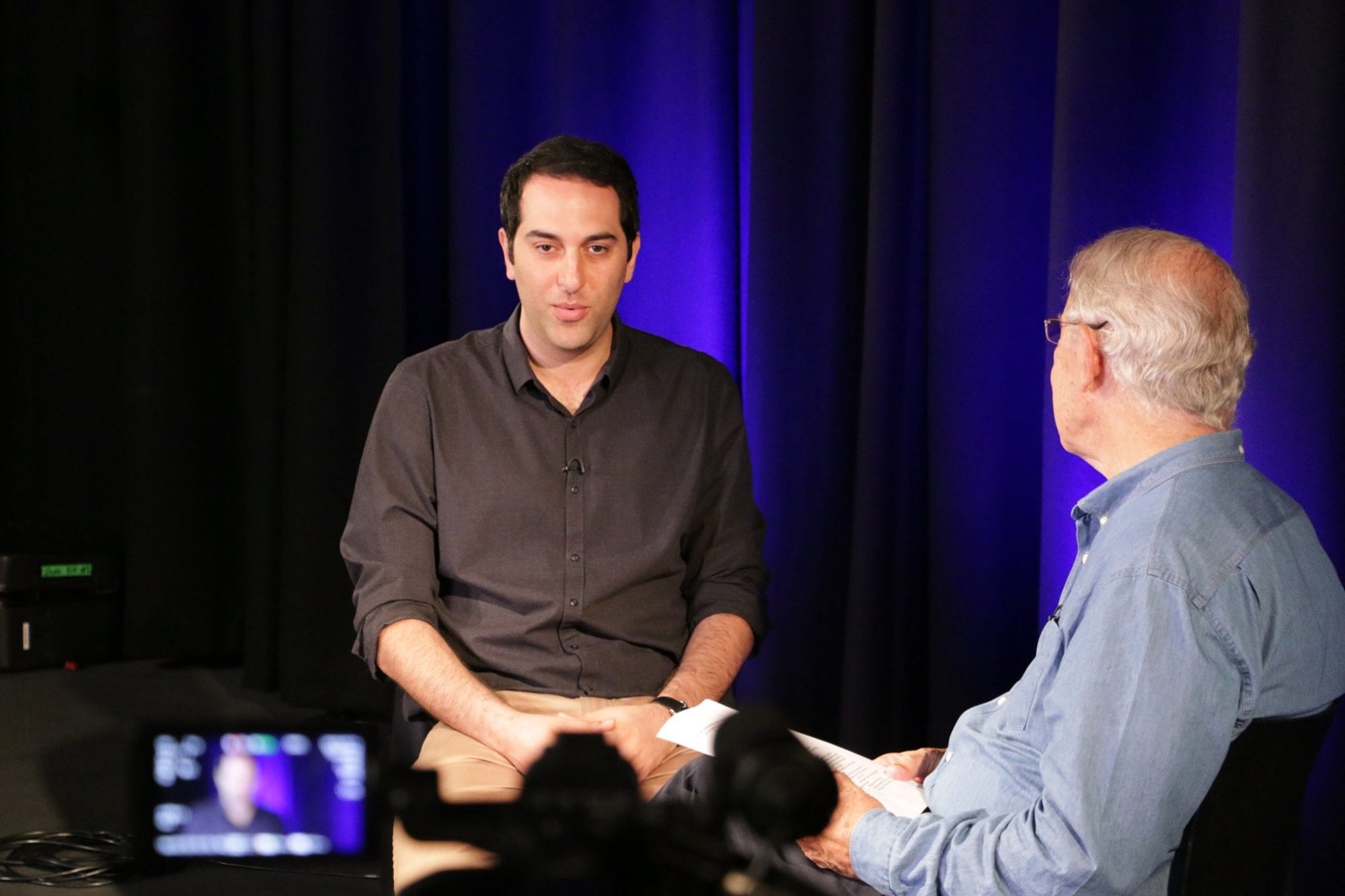
“I publish two articles and one video each week,” he said. “We are building our social media platforms and trying to promote TGC Farsi so people can use our content as well as engage with us for further discipleship plans. We are doing conversations with people like Don Carson and Mike Kruger to address some of the theological issues we are facing in the Iranian church––things like inerrancy, the Trinity, how to deal with false teachers, and how to know we can trust the Bible.”
While the site is mostly English-speaking authors, a few Iranians have written as well. One of Alizadeh’s goals is to raise up a new generation of Iranians who can write solid theological content.
Back in Iran, “there are a lot of problems, but also a lot of beauty,” Crabtree said. “People are attracted to grace in the gospel, versus what they see in their dominant religion.”
The underground growth reminds him of Luke 17:20–21, where Jesus says the kingdom of God isn’t always obvious: “Look, here it is!” or “There!”
“We don’t always know where the kingdom is,” he said. “And that’s a good thing. . . . His Spirit is working in our midst.”

















